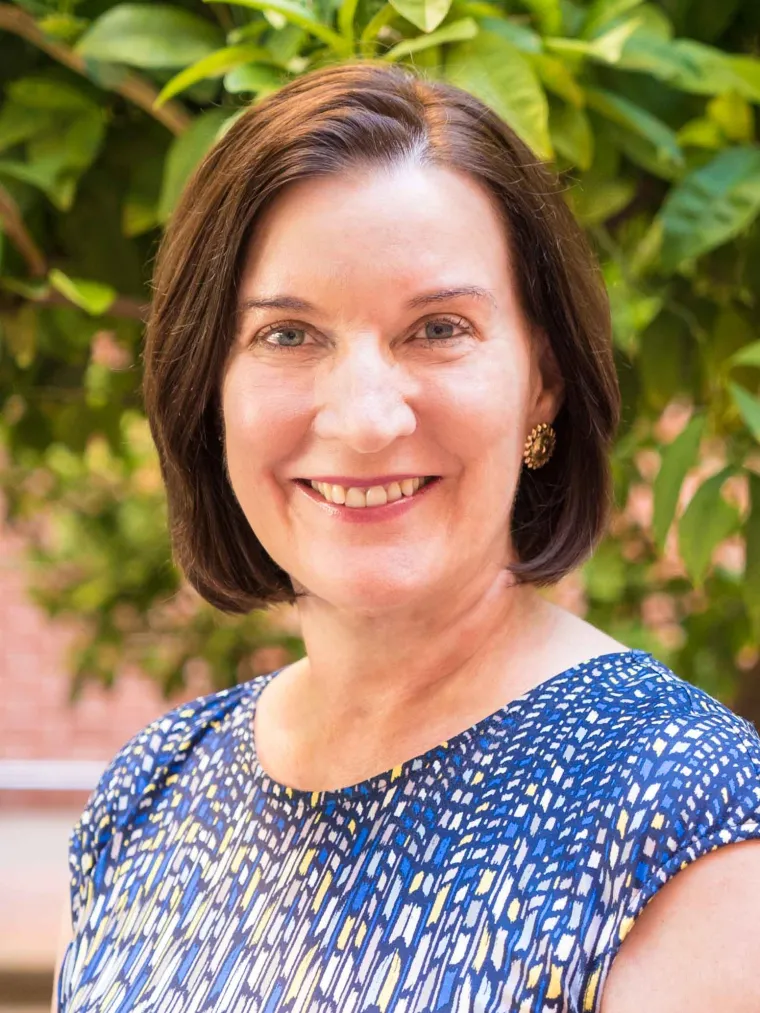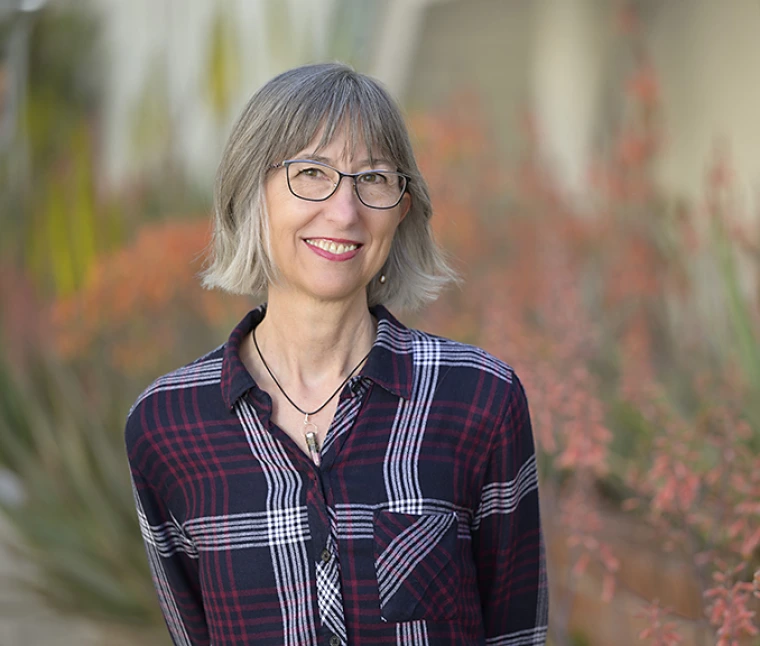Prevention and Health Promotion
Testing interventions for prevention and health promotion to minimize the burden of diseases and increase healthy behaviors.
Developing and testing interventions for prevention and health promotion to minimize the burden of diseases and associated risk factors and empower people to increase control over their health and its determinants to increase healthy behaviors. A primary goal of prevention and health promotion is to achieve health for all, where everyone can attain their highest level of health. Achieving health requires addressing the social determinants of health. Determinants of health are multiple and complex, and include social and economic environments, physical environments, health care behaviors, genetics, and the health care system.
Within prevention and health promotion, our researchers are focused on preventing cancer, cardiovascular disease, and diabetes. Our faculty also develop novel methods for early detection of disease. Our health promotion researchers focus on creating and testing interventions for improving health across life course, maternal-child health, and health behaviors.
Faculty
Hyochol Brian Ahn

Hyochol Brian Ahn, PhD, APRN, ANP-BC, FAAN, is the Dean of the College of Nursing at the University of Arizona. Previously, he served as the Associate Dean for Research and was the founding director for Brain Science and Symptom Management Center at the Florida State University. Prior to that, he served as the Assistant Dean for Research and held the Isla Carroll Turner Endowed Chair in Gerontological Nursing at the University of Texas Health Science Center.
Dr. Ahn's educational background encompasses diverse fields, including a BE in Electrical Engineering from the University of Seoul, South Korea, an MS in Electrical and Computer Engineering, a BSN/MSN/PhD in Nursing, and an MS in Medical Sciences, all attained from the University of Florida. He combines his expertise in nursing, medicine, and computer engineering, and uses mobile and connected computer technology to optimize delivering home-based nonpharmacological intervention and improve patient-centered outcomes in chronically ill and aging populations, especially among underserved populations.
His research has been continuously funded since 2011, including an NIH/NINR R01 award as PI, and has produced more than 180 peer-reviewed publications and scientific presentations related to healthcare technology, health equity, symptom science, and population health and wellness. His contributions extend beyond academia as he has served on numerous grant review panels for esteemed institutions such as the National Institutes of Health, Department of Defense, and the Department of Veterans Affairs, where he had the privilege of chairing some of these panels. Furthermore, he actively serves on the editorial boards of various esteemed journals, including the Asian/Pacific Island Nursing Journal (APINJ) as the Editor-In-Chief.
As an Advanced Practice Registered Nurse and nationally board-certified Nurse Practitioner recognized by the American Nurses Credentialing Center, Dr. Ahn actively contributes to the development of curriculum in his role. He plays a pivotal part in the restructuring of the curriculum, placing emphasis on problem-solving and team-based approaches. Additionally, he incorporates online learning methods to complement early clinical exposure. Adhering to the guidelines set by the American Association of Colleges of Nursing, Dr. Ahn provides invaluable support to faculty members in adapting educational models and ensuring adherence to accreditation standards as outlined by the Commission on Collegiate Nursing Education. With his Graduate Certificate in Nursing Education, he takes the lead in spearheading the creation of innovative strategies aimed at expanding programs to meet the growing demand for highly skilled nurses. Furthermore, he actively cultivates and nurtures professional partnerships with healthcare and community organizations. Dr. Ahn's dedication to advancing Bachelor of Science in Nursing and gerontological nursing education has been recognized with the esteemed Distinguished Educator Certificate in Gerontological Nursing from the National Hartford Center of Gerontological Nursing Excellence.
Degrees
- M.S. Medical Sciences, University of Florida, 2015
- Ph.D. in Nursing , University of Florida, 2012
- M.S.N. Adult and Elderly Nursing, University of Florida, 2009
- B.S.N. , University of Florida, 2007
- M.S. Electrical and Computer Engineering, University of Florida, 2004
- BE Electrical Engineering, University of Seoul, 1997
Rachel H. Adler

Dr. Rachel Adler is a seasoned anthropologist and a psychiatric nurse practitioner with extensive experience conducting qualitative and mixed-methods research with vulnerable populations. Her book, Yucatecans in Dallas, Texas: Breaching the Border, Bridging the Distance, is based on over two years of intensive, binational, ethnographic research with a community of Mexican migrants in Texas. In her more current work, she merges her social science expertise in culture, ethnicity, and gender with her extensive clinical knowledge of psychiatry and psycho-oncology. This combination of skills makes her uniquely prepared to conduct culturally relevant interventional research with cancer survivors in the University of Arizona Cancer Center's predominantly Hispanic catchment area. Rachel Adler became a nurse during her first sabbatical to broaden her skill set in medical anthropology and to become a more effective researcher with real-world impact. For more than a decade, Dr. Adler has integrated her nursing practice with her anthropological scholarship to advance translational science, serving as the site PI and co-investigator on several federal grants, allowing her to contribute to the literature on psychosocial oncology, psychiatry, men's mental health, research methods, and veterans' health.
Degrees
- M.S.N. Advanced Practice Nursing, The College of New Jersey, 2018
- B.S.N. Nursing, Drexel University, 2009
- Ph.D. Anthroplogy, Arizona State University, 2000
- M.A. Anthroplogy, Arizona State University, 1992
- B.S. Social Science Secondary Education, SUNY Oneonta
Licensure & Certification
- Psychiatric Mental Heatlh Nurse Practitioner, American Nurses Credentialing Center (2021)
- Adult Primary Care Nurse Practitioner, American Academy of Nurse Practitioners Certification Board (2019)
Research Interests
psychosocial oncology; mental health; behavioral interventions; integrative psychiatry
Terry A Badger
Dr. Terry Badger's research focuses on symptom management, including reducing psychological distress, for cancer survivors and their caregivers. Her contributions to science include documenting the effectiveness of telephone delivered psychosocial interventions in improving symptom management and quality of life. Her second contribution has been the investigation of telephone delivered psychosocial interventions that reduce health disparities for English-speaking and Spanish-speaking cancer survivors and their caregivers. Lastly, Dr. Badger dyadic analytic methods to document the critical influence of members of the survivors' social networks or caregivers have on cancer recovery. Dr. Badger currently has NIH funded R01s as well as CHERC funding from the American Cancer Society.
Additional Links: Publications on My NCBI
Degrees
- Ph.D. Nursing, University of Texas, 1986
- M.S. Nursing, Arizona State University, 1979
- B.S.N. Nursing, Arizona State University, 1975
Research Interests
cancer survivors; caregivers; symptom management; psychological distress
Aleeca Bell
Dr. Aleeca Bell's program of research, developed from her 27 years as a Certified Nurse Midwife, focuses on women and infant perinatal outcomes, and the underlying oxytocin system. Her predoc and postdoc funding investigated epidural anesthesia and synthetic oxytocin relating to cortisol and immediate newborn behaviors. Subsequent private foundation and NIH KL2 funding added to an established, longitudinal, British dataset revealing: a genetic-epigenetic susceptibility in the oxytocin receptor gene (OXTR) to postpartum depression; and a positive birth experience supports maternal mental health and caregiving. Pilot work led to an NIH-funded R01 award (2020-2025) conducted as PI at UA. By targeting women with a history of childhood adversity (expecting their first child), the RCT determined 1) the efficacy of Massage+, a behavioral infant massage, on improving the quality of mother-infant synchrony; and 2) the role of the oxytocin system underlying the efficacy of Massage+ and mother-infant synchrony, respectively. A unique contribution to the literature will be characteristics of the oxytocin system across pregnancy and postpartum including data on infant oxytocin, and maternal OXTR DNA methylation, gene expression, and genotype, and a potential oxytocin biomarker. This perinatal dataset with multiple birth and psycho-social measures is available to students.
Degrees
- Ph.D. in Nursing, University of Illinois at Chicago, 2009
- M.S. Nurse-Midwifery, University of Illinois at Chicago, 1998
- A.A.S. Nursing, Prairie State College, 1996
- B.A. Board of Governors, Governors State University, 1996
Research Interests
oxytocin; perinatal; mother-infant synchrony
Sheila M Gephart
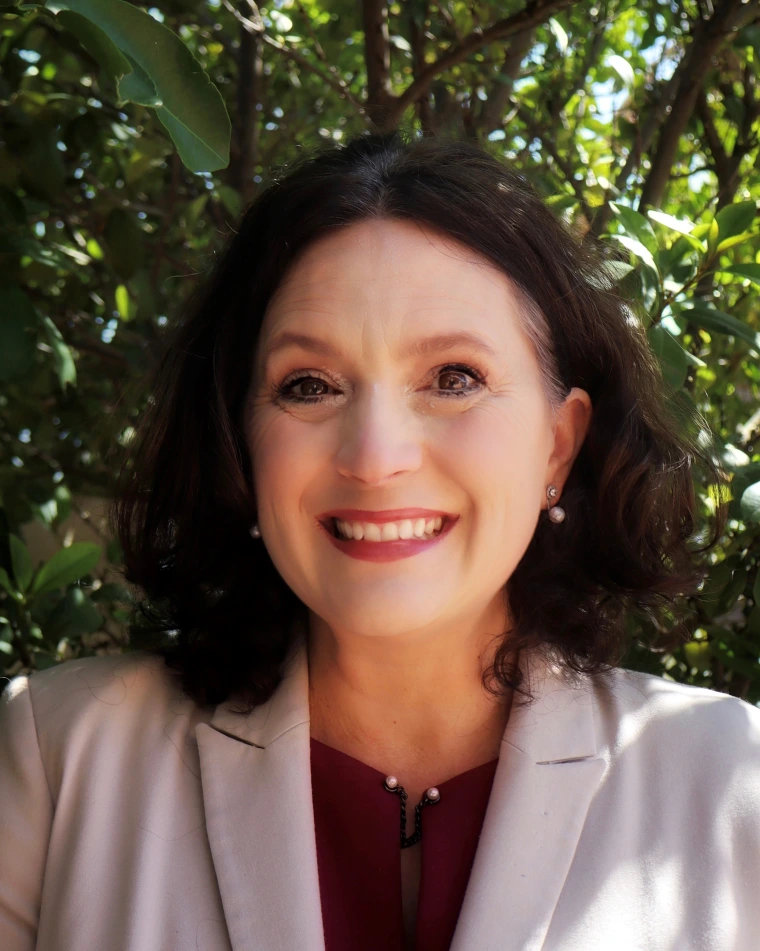
Dr. Sheila Gephart, PhD, RN, FWAN, FAAN is a Nurse Scientist with expertise in informatics, necrotizing enterocolitis (NEC), and implementation science. Her work started in the NICU when she was working at the bedside as a nurse and was troubled by the sudden development of NEC in a cluster of preterm infants. She developed and has refined a tool for NEC risk recognition called GutCheckNEC. She has worked with parent and clinical stakeholders to create a toolkit called "NEC-Zero." She has also worked in informatics, focused on clinical decision support, predictive modeling, and technology burden. She is currently refining GutCheckNEC and using telehealth delivered mentoring (Project ECHO) to improve adoption of NEC prevention practices in the U.S. She enjoys working students across all levels, mentoring junior colleagues and service-leading across the university.
Degrees
- Ph.D. in Nursing Nursing, The University of Arizona, 2012
- B.S. Nursing, Oregon Health Sciences University, 1998
Research Interests
necrotizing enterocolitis; informatics; neonatal intensive care; patient safety
Chiyoung Lee
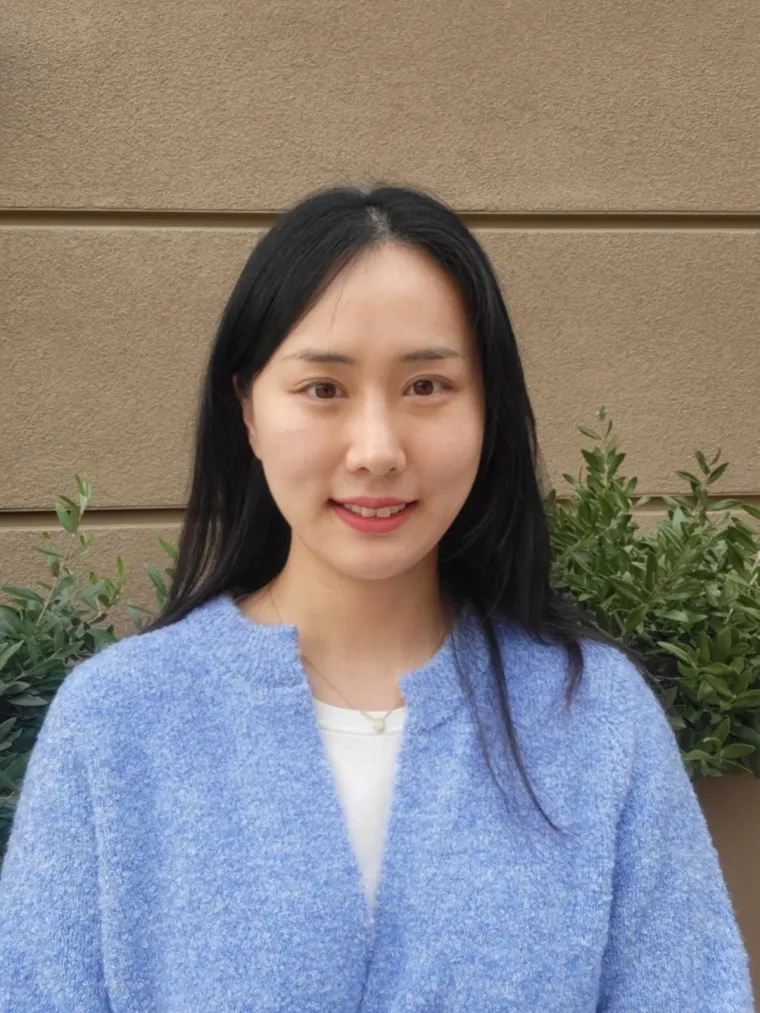
Dr. Chiyoung Lee is a nursing scientist dedicated to advancing the understanding of the etiology and assessment of neuropsychiatric symptoms, with a particular focus on the biopsychosocial underpinnings of pain and pain-related emotional and cognitive symptoms in older adult populations with chronic conditions such as osteoarthritis and Alzheimer's Disease and Related Dementias (ADRD). Building on this foundational work, Dr. Lee's research aims to develop sophisticated intervention strategies to reduce neuropsychiatric symptoms. These strategies include noninvasive neuromodulation approaches, particularly home-based transcranial electrical stimulation (tES) for older adults with knee osteoarthritis and/or ADRD. Additionally, her work employs lab-based experimental paradigms to assess pain-related brain responses, utilizing advanced Quantitative Sensory Testing, functional Magnetic Resonance Imaging (fMRI), and functional Near-Infrared Spectroscopy (fNIRS) to enhance understanding of the neural mechanisms underlying tES effects. Her ongoing efforts focus on systematically optimizing tES treatment protocols and refining approaches by varying key stimulation parameters based on empirical findings to ensure clinical applicability. Dr. Lee currently serves as a co-investigator on a NIH/NINR-funded R01 study, which incorporates multimodal interventions-combining tES with mindfulness-based meditation-to more effectively address neuropsychiatric symptoms among older adults with knee osteoarthritis. She is also the Principal Investigator of two funded projects: the ORP Core Facilities Pilot Program at the University of Arizona Research, Innovation & Impact and the 2026 USASP-Mayday Clinical/Translational Research Award. Both projects aim to develop tailored neuromodulation-based interventions to achieve comprehensive pain relief for individuals with knee osteoarthritis experiencing chronic widespread pain.
Additional Links: Publications on Google Scholar
Degrees
- Ph.D. Nursing, Duke University, 2020
- M.S.N. Nursing, Seoul National University, 2017
- B.S.N. Nursing, Seoul National University, 2013
Research Interests
Alzheimer's disease and related dementias; neuromodulation; osteoarthritis; pain
Ashley Anne Lowe

Dr. Ashley A. Lowe is an Assistant Professor and Community-Engaged Translational Scientist at the University of Arizona College of Nursing Since 2024. Her research focuses on the implementation and evaluation of evidence-based interventions, with a particular emphasis on pediatric asthma management and school-based health systems. As the Program Director of the Stock Inhaler for Schools Program, she leads a statewide initiative that ensures access to rescue medications for over 850 schools across Arizona. This program, the longest consecutively funded school-based research initiative in the United States, serves as a model for translating evidence-based practices into real-world settings. Over the past eight years, she has trained thousands of school nurses and staff in medication administration and intervention strategies, significantly improving asthma management and health outcomes in schools. Her expertise in implementation science and dissemination (D&I) methods drives her work in advancing scalable and sustainable health interventions. Her publication record in peer-reviewed journals highlights her contributions to the field, and she actively mentors graduate students across public health, medicine, and nursing disciplines. An active member of the American Thoracic Society, she collaborates with local, state, and national organizations to drive impactful, community-focused research initiatives.
Degrees
- Ph.D. Health Behavior, Unive, 2021
- M.S. Health Behavior, Unive, 2018
Research Interests
implementation science; pediatric asthma; school-based interventions; community-engaged research
Julio C Loya
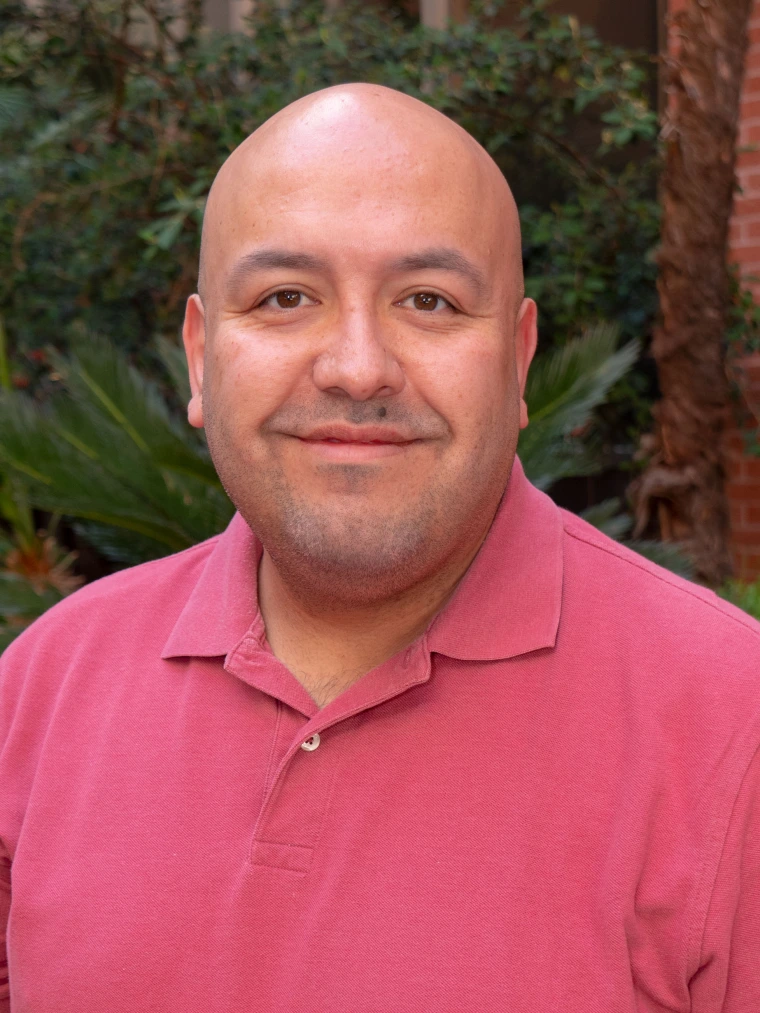
Degrees
- Ph.D. in Nursing , University of Missouri, 2021
- Graduate Certificate Participatory Health Research, University of Missouri, 2018
- Graduate Certificate Public Health, University of Missouri, 2016
- B.S.N. , Northern Arizona University, 2010
- A.A.S. Nursing, Cochise Community College, 2004
- B.S. General Biology, University of Arizona, 2002
Marianne Matthias

Dr. Marianne Matthias, PhD is Associate Dean of Research and a Professor in the College of Nursing at the University of Arizona. She is a health services researcher who focuses on patient empowerment in healthcare contexts, with particular interests in treatment decision-making in chronic pain care and behavioral interventions to improve chronic pain care and advance health equity. She has specific methodological expertise in qualitative methodology and clinical trials. Dr. Matthias recently completed a VA-funded study as principal investigator of a randomized controlled trial focused on patient activation and communication for Black Veterans with chronic pain. Currently she leads a VA-funded clinical trial of an intervention to increase the use of evidence-based nonpharmacological pain treatments and a study funded by NIH's HEAL Initiative focused on increasing access to treatment options for Black patients with chronic pain and comorbid depression. In addition, she is a co-investigator on a number of other funded studies, including a study funded by NIH's HEAL Initiative testing a mindfulness-based intervention to improve pain management and reduce opioid use among rural veterans. She serves on the Editorial Boards of the Journal of General Internal Medicine and Pain Medicine and has published over 130 scholarly articles.
Research Interests
chronic pain; shared decision-making; health equity; patient empowerment
Helena W Morrison
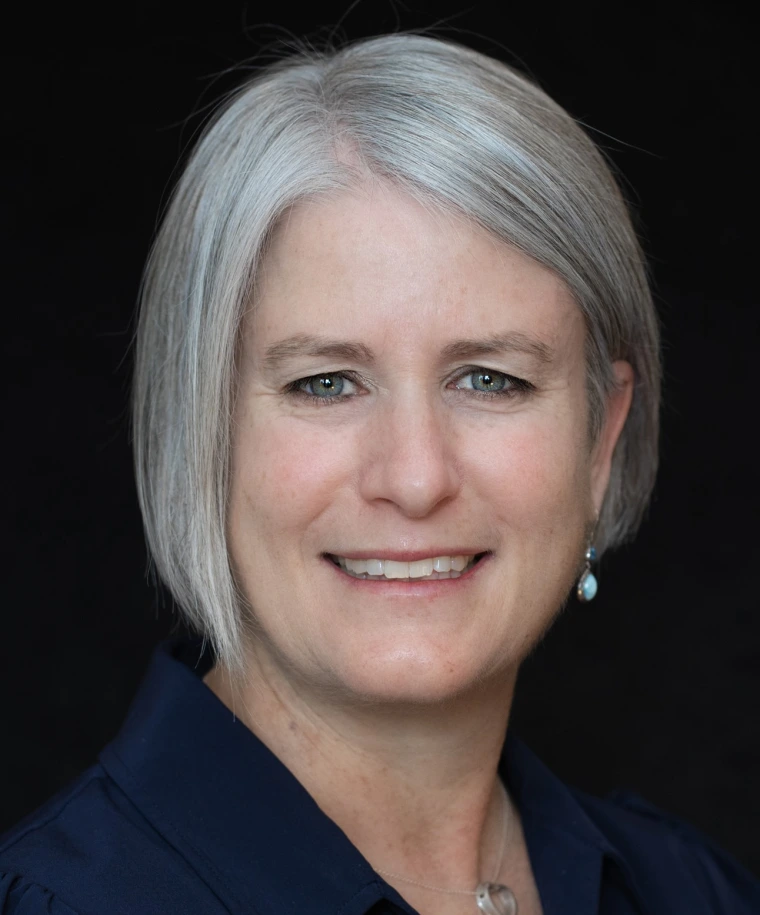
Dr. Helena Morrison's research program focuses on understanding mechanisms of brain injury during ischemic stroke, with particular emphasis on neuroinflammation, microglia function, and sex differences in stroke outcomes. Her work spans from acute injury responses to chronic consequences of stroke, utilizing advanced imaging techniques including MRI and optical methods to investigate cellular and molecular changes in preclinical models. Her clinical background in intensive care nursing informs her translational approach, bridging bedside observations with laboratory investigations to identify novel therapeutic targets. She has published over 30 peer-reviewed articles and maintains active collaborations both nationally and internationally. Dr. Morrison has received multiple awards recognizing her research contributions and teaching excellence. She actively mentors undergraduate and graduate students, having supervised numerous honors projects and served as chair or committee member for PhD and DNP students. Her research is supported by federal grants from NIH and NSF, reflecting her commitment to advancing stroke science through rigorous translational research.
Degrees
- Ph.D. Nursing, University of Arizona, 2005
- B.S.N. Nursing, Angelo State University, 2004
- B.S. Animal Science, University of Arizona, 1997
Research Interests
physiology/pathophysiology; Ischemic stroke; neuroinflammation; quantitative methods
Thaddeus Wesley Warren Pace
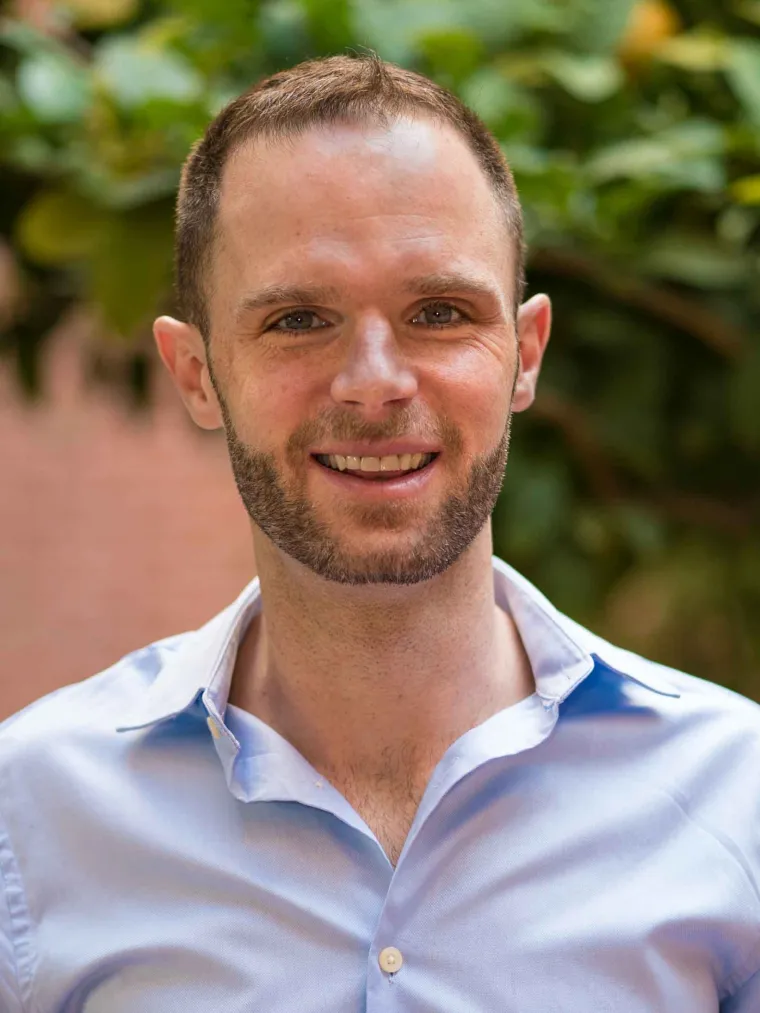
The goal of Dr. Pace's research is to understand the bidirectional connections that exist between the mind and the body, and to use this knowledge to make people healthier. His scholarship complements his work in the classroom, where he teaches mind-body science. Current research in Pace's lab seeks to further what we know about the biopsychological mechanisms that link psychological stress and illness (e.g., anxiety, depression), and to develop contemplative interventions that ameliorate stress-related illness. Dr. Pace has made significant contributions to what we know about the mechanisms of how psychological stress impacts health in those at risk for stress-related illnesses, and how cancer, cancer treatments, and stress impact the mind. He has also conducted research to improve the lives of frontline workers, in particular firefighters who are at increased risk for anxiety and depression. He has used his knowledge of stress and psychoneuroimmunology to develop new interventions for survivors of cancer and their families who often experience fatigue and depression, as well as firefighters who experience significant stress. His research has and continues to be funded by the National Institutes of Health, and more recently has also been funded by the Centers for Disease Control and Prevention.
Research Interests
psychological stress; meditation; stress biology
Juyoung Park

Dr. Juyoung Park's research focuses on technology-based nonpharmacological interventions for older adults with chronic pain and cognitive impairment. Her work integrates transcranial direct current stimulation (tDCS), mindfulness-based meditation, and movement-based therapies such as chair yoga to improve pain, mobility, and neuropsychiatric outcomes in individuals with Alzheimer's disease and related dementias (AD/ADRD) and osteoarthritis. She also investigates objective pain assessment using multimodal approaches that combine functional brain imaging, EEG, eye tracking, and wearable sensors to capture neurophysiologic pain responses. She has served as Principal Investigator and Co-Investigator on NIH- and John A. Hartford Foundation-funded clinical trials, cross-sectional, and cohort studies addressing nonpharmacological pain management, pain modulation, and social determinants of cognitive aging. Her current projects include R01s testing home-based tDCS and mindfulness therapy for knee osteoarthritis pain, a longitudinal study examining environmental and social factors in cognitive decline, an R03 data-integration models for ADRD research, and an Arizona Biomedical Research Centre grant developing multimodal pain-assessment systems. Dr. Park leads multidisciplinary research advancing technology-based solutions that integrate behavioral science and neurophysiology. A Fellow of the Gerontological Society of America and a USASP Leadership Academy scholar, Dr. Park bridges gerontology, neuroscience, and digital health to advance equitable, scalable care for aging populations.
Degrees
- Ph.D. Social Work, University of Maryland, Baltimore, 2009
- M.S.W. Social Work, University of South Carolina, 2001
- B.A. Interdisciplinary Studies, University of South Carolina, 1999
Research Interests
nonpharmacological pain management; technology-enabled interventions; transcranial direct current stimulation; objective pain assessment
Julienne Rutherford
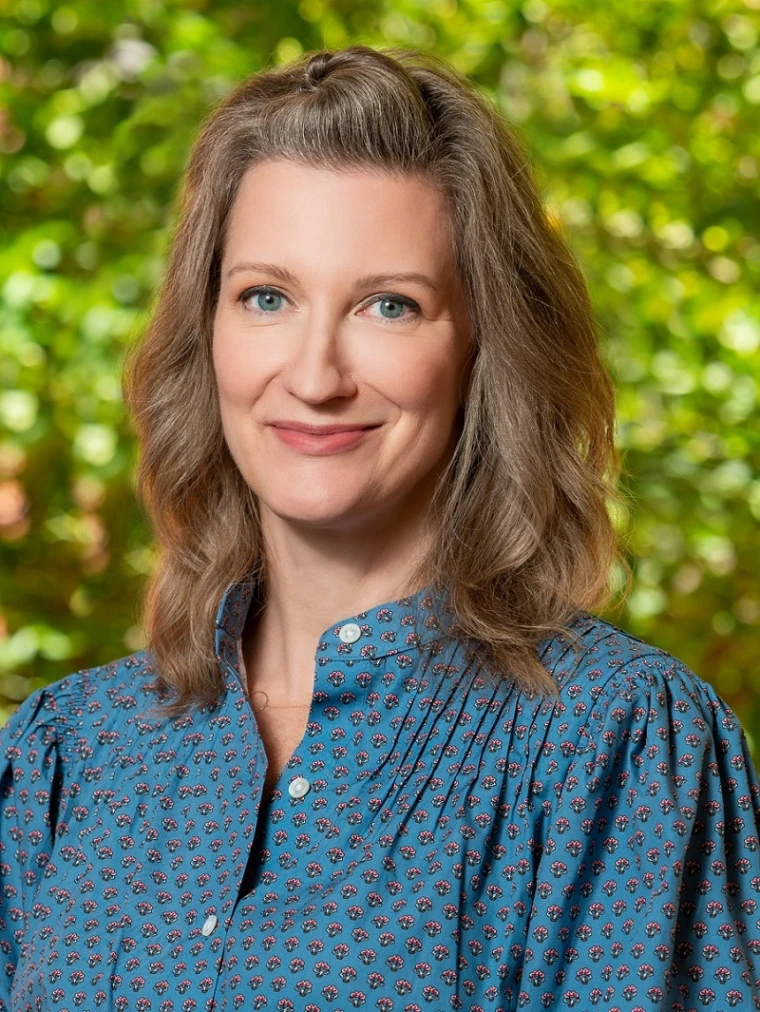
For nearly 25 years, Dr. Julienne Rutherford has sustained a program of research exploring the intrauterine environment as a biosocial determinant of health. Her research studies how maternal life history and lived experience shape this earliest developmental setting, and how, in turn, the intrauterine environment influences growth, health, and development across the life course and across generations. Her research has two primary arms. The first is the pathophysiology of postpartum hemorrhage, and the potential role placental processes early in pregnancy play in increased risk of excessive bleeding at birth. The second program of research is in the marmoset monkey, which is studied as a model of variable early-life environments. Dr. Rutherford designed and led a "Womb to Womb" NICHD-funded R01 study of marmosets to determine how prenatal influences shape female reproductive development and pregnancy outcomes across generations. Together with her team, she has shown that in the marmoset, a mother's own birth weight and litter size are associated with her pregnancy outcomes in adulthood and the reproductive development of her daughters. Her research is now expanding that lens to include the impact of early life environments in males on their adult reproductive function, including sperm quality and genetics.
Additional Links: Publications on Google Scholar
Degrees
- Ph.D. Biological Anthropology, Indiana University, 2007
- M.A. Biological Anthropology, Indiana University, 2004
- B.A. Anthropology and Zoology (double major), Miami University, 1994
Teaching Interests
pregnancy; women's health; placenta
Meghan B. Skiba

Dr. Meghan Skiba, PhD, MS, MPH, RDN is a nutritional epidemiologist and Registered Dietitian Nutritionist. Dr. Skiba's multidisciplinary expertise bridges behavioral science, nutrition, and oncology to advance understanding of how lifestyle factors influence biological aging among cancer survivors and their caregivers. Her research focuses on biological aging, digital health, and dyadic (survivor-caregiver) approaches to improving diet, physical activity, and overall well-being. Her contributions to the field have advanced the understanding of lifestyle, biological aging, and digital health interventions to improve outcomes for cancer survivors and their caregivers. Dr. Skiba's current research aligns to the Phase 1-3 ORBIT model of behavioral interventions and is funded by the National Cancer Institute and American Cancer Society. Her active studies include adaptation of evidence-based diet and physical activity interventions for cancer survivors for the regional and cultural context, and a social media delivered cancer prevention intervention for rural emerging adults. She has extensive experience delivering remotely administered diet and exercise interventions which integrate text messages, health coaching, wearable sensors, community-engaged research, and advanced data analytics. She mentors students on how to integrate these strategies to address complex health problems in diverse populations through collaboration with local and state organizations.
ADDITIONAL LINKS: Publications on Google Scholar
Degrees
- MPH Epidemiology, University of Arizona Mel and Enid Zuckerman College of Public Health, 2020
- Ph.D. Health Behavior Health Promotion, University of Arizona Mel and Enid Zuckerman College of Public Health, 2020
- Dietetic Internship Medical Nutrition Therapy, University of Houston, 2016
- Graduate Certificate College Teaching, University of Arizona, 2016
- M.S. Nutritional Sciences, University of Arizona, 2016
- B.S. Nutritional Sciences and Dietetics, University of Arizona, 2012
Research Interests
biological aging; community engaged research; diet and physical activity; dyadic behavioral interventions
Ruth E. Taylor-Piliae
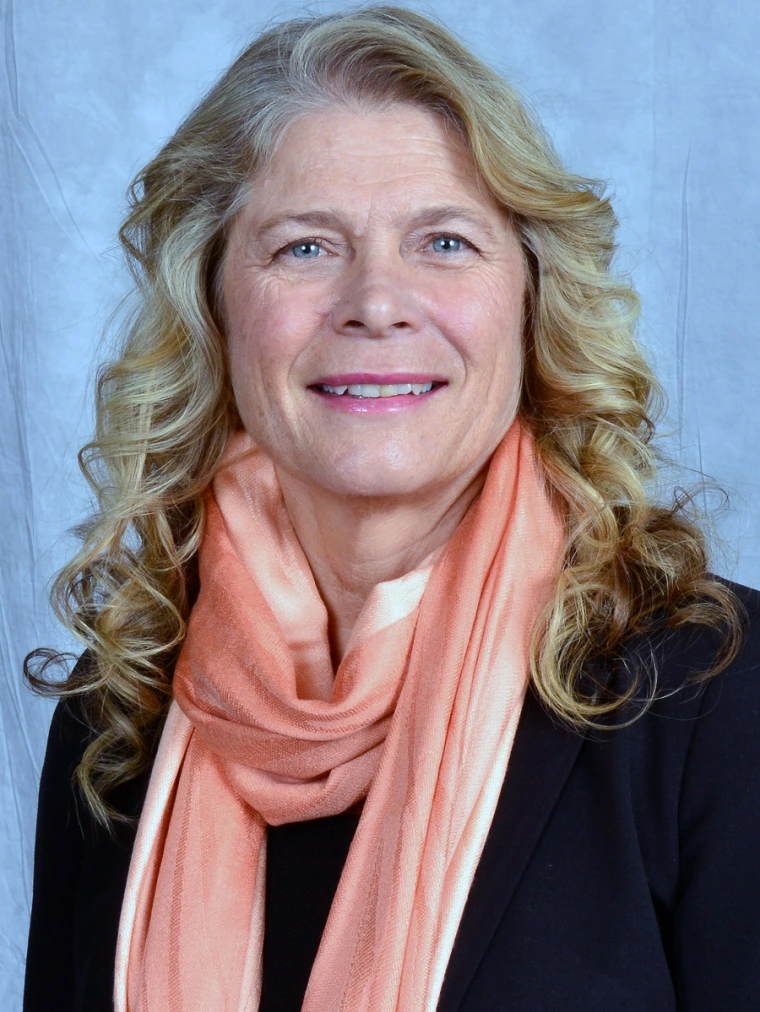
Dr. Ruth Taylor-Piliae, PhD, RN, FAHA, FAAN is recognized internationally as a nurse scientist and mind-body exercise interventionist, with training in cardiovascular epidemiology and clinical trials. Her research focuses on integrative physical activity interventions for older adults to advance cardiovascular health through Tai Chi and technology. Dr. Taylor-Piliae has been a Tai Chi practitioner for over 25 years, and is certified as a Tai Chi Easy™ Practice Leader from the Institute of Integral Qigong and Tai Chi. Her current Tai Chi research includes adults with diabetes, older adults with cognitive decline, caregivers of stroke survivors, and Mexican-American adults with hypertension. She uses wearable sensor technology, such as smart rings and smartwatches to assess 24-hour sleep, activity and stress levels. Dr. Taylor-Piliae has over 90 peer-reviewed manuscripts published in top-tiered nursing and inter-professional journals. She is highly cited for her work (citations>5900, h-index=39, i10-index=68). She has mentored over 60 doctoral students, along with junior faculty members from nursing, medicine, bio-medical engineering, and pharmacy. Dr. Taylor-Piliae is a long-standing member in the American Heart Association/American Stroke Association, European Society of Cardiology, Western Institute of Nursing, and the American Academy of Nursing. She has received several teaching, research and service awards.
Additional Links: Publications on Google Scholar
Degrees
- Ph.D. Nursing, University of California San Francisco, 2005
- M.S.N. Nursing, The Chinese University of Hong Kong, 1998
- B.S.N. Nursing, California State University, Fresno, 1980
Research Interests
cardiovascular disease; integrative health; physical activity; wearable sensors


